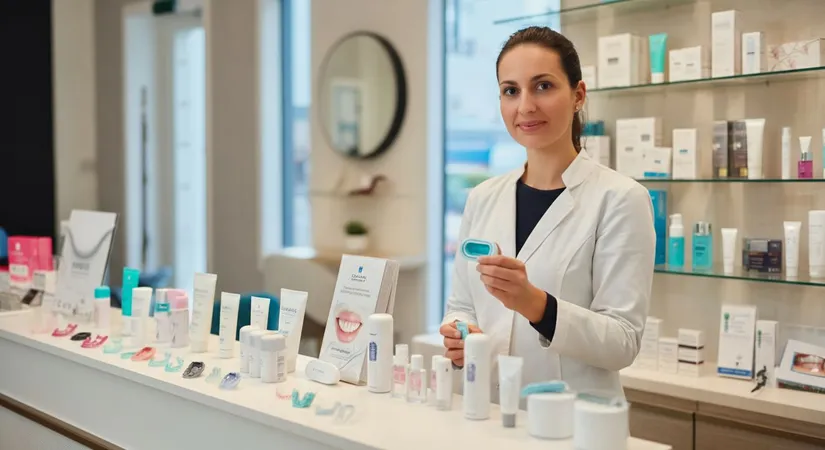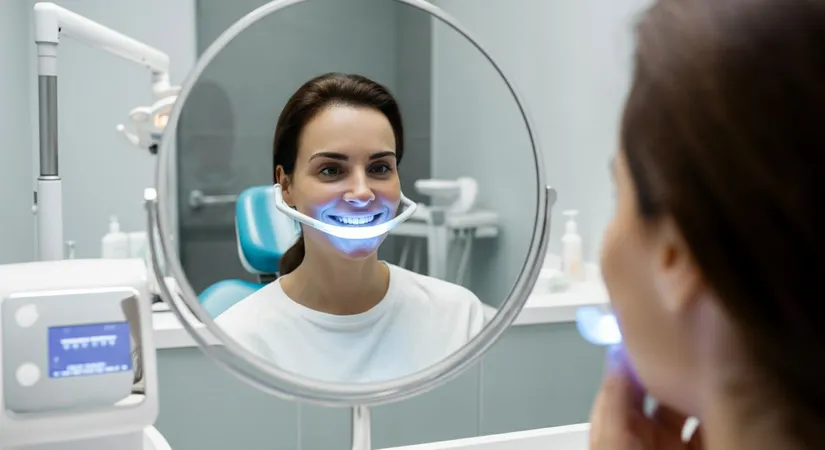Brighten Your Smile: Discover the Best Teeth Whitening Solutions
Discover the best methods for teeth whitening including DIY home solutions, sensitive teeth options, and cutting-edge services in your area!
In today's world, a bright, white smile is synonymous with health and confidence. Whether you are preparing for a special occasion or simply want to enhance your everyday appearance, teeth whitening offers a variety of benefits. From over-the-counter products to professional treatments, finding the right solution can transform your smile. This guide will explore effective methods, safe options for sensitive teeth, and the truth behind trending treatments like charcoal whitening.
How to Whiten Teeth at Home: Effective DIY Methods
Natural Ingredients for Teeth Whitening
Home teeth whitening can be both economical and convenient. Baking soda, hydrogen peroxide, and apple cider vinegar are natural products that can help remove stains. These ingredients are often praised for their ability to brighten teeth without the use of harsh chemicals.
- Baking soda acts as a mild abrasive, effectively scrubbing away surface stains.
- Hydrogen peroxide is a natural bleaching agent that can lighten discoloration.
- Apple cider vinegar, though acidic, can help remove stubborn stains when used sparingly.
Commercial Products for At-Home Whitening
Whitening toothpaste and strips are popular due to their accessibility and ease of use. These products are designed to fit seamlessly into daily routines, offering a practical solution for those seeking brighter smiles.
- Choose a whitening toothpaste that contains fluoride to protect enamel.
- Use whitening strips as directed, typically once a day for optimal results.
- Monitor sensitivity and adjust usage if discomfort occurs.
However, it's important to follow instructions carefully to avoid damaging your enamel. Overuse or incorrect application can lead to increased sensitivity or enamel erosion, highlighting the need for cautious use of these products.

Teeth Whitening for Sensitive Teeth: Safe Options
Effective Whitening Solutions for Sensitive Teeth
For individuals with sensitive teeth, selecting the right whitening method is crucial. Products with lower peroxide concentrations are often recommended, as they can provide whitening benefits while minimizing discomfort. These products are designed to gently remove stains without aggravating sensitivity.
- Low-peroxide gels offer gradual whitening with reduced irritation.
- Whitening toothpaste formulated for sensitivity can help maintain brightness.
- Desensitizing strips provide a gentle approach to whitening.
Professional treatments tailored for sensitivity can also be effective. These treatments often include desensitizing agents that help protect the teeth while achieving desired whitening results. Consulting with a dentist can ensure that the chosen method aligns with individual needs and sensitivity levels.
- Consult your dentist to assess your sensitivity level.
- Select a professional treatment with desensitizing agents.
- Follow post-treatment care to maintain results and comfort.
By carefully selecting products and treatments, individuals with sensitive teeth can achieve a brighter smile without compromising comfort. This approach ensures that the whitening process is both safe and effective, catering to the unique needs of sensitive teeth.

Exploring Teeth Whitening Services: What to Expect
Understanding Professional Teeth Whitening Procedures
Professional teeth whitening services are renowned for delivering rapid and noticeable results. These services utilize potent peroxide-based whiteners, significantly stronger than over-the-counter options. During the procedure, a protective barrier is applied to the gums to prevent irritation, ensuring the bleaching agent targets only the teeth.
- Professional-grade whiteners can lighten teeth by several shades in a single session.
- Gum protection is crucial to prevent sensitivity and irritation during treatment.
- Results are often more uniform and longer-lasting compared to home methods.
Post-treatment, patients typically experience a dramatic improvement in tooth brightness, often several shades lighter. This immediate transformation is a key advantage of professional services, making them a popular choice for those seeking quick results.
Factors Influencing the Effectiveness of Whitening Services
The effectiveness of professional teeth whitening can vary based on several factors. The initial shade of the teeth, the type of stains present, and the specific whitening system used all play a role in the outcome. Additionally, lifestyle habits such as smoking or consuming staining foods and beverages can affect the longevity of the results.
- Initial consultation to assess tooth color and stain type.
- Selection of an appropriate whitening system tailored to individual needs.
- Post-treatment care to maintain results, including avoiding stain-causing substances.
Understanding these factors can help individuals make informed decisions about their whitening options, ensuring they achieve the best possible results. By considering these elements, patients can enjoy a brighter smile that lasts longer and meets their aesthetic goals.
Charcoal Teeth Whitening: Myth or Miracle?
Understanding the Risks and Benefits of Charcoal Whitening
Charcoal teeth whitening has become a trendy method for achieving a brighter smile. Advocates claim it effectively removes surface stains, offering a natural alternative to chemical whiteners. However, dental experts caution against excessive use due to potential enamel erosion.
- Charcoal's abrasive nature can help lift surface stains, enhancing tooth brightness.
- Overuse may lead to enamel thinning, increasing sensitivity and vulnerability to decay.
- Charcoal lacks the ability to penetrate deeper stains, limiting its overall effectiveness.
Despite its popularity, charcoal whitening should be approached with care. Dental professionals recommend moderation and suggest consulting with a dentist to explore safer, more effective alternatives for deeper discoloration.
Alternatives to Charcoal for Effective Whitening
For those seeking alternatives to charcoal, several options offer safer and more reliable results. Professional dental bleaching, for instance, provides a controlled environment with potent whitening agents, ensuring both safety and efficacy.
- Consult with a dentist to determine the best whitening method for your needs.
- Consider professional treatments that offer customized solutions for deeper stains.
- Explore whitening products with proven safety records and clinical backing.
By choosing alternatives that prioritize enamel health, individuals can achieve a whiter smile without compromising dental integrity. This approach ensures long-term oral health while meeting aesthetic goals.
Innovative Teeth Whitening Techniques for Sensitive Teeth
Safe and Effective Charcoal Whitening Alternatives
Frequently Asked Questions
What are the best teeth whitening methods for sensitive teeth?
How effective are professional teeth whitening services compared to at-home methods?
Is charcoal teeth whitening safe for regular use?
How can I maintain the results of my teeth whitening treatment?
What should I expect during a professional teeth whitening procedure?
Discover the Path to 'Healthy Beauty' with estethica! Contact us today for a free consultation and take the first step towards enhancing your natural beauty with our expert team.
📞 Call Now for Your Free Consultation